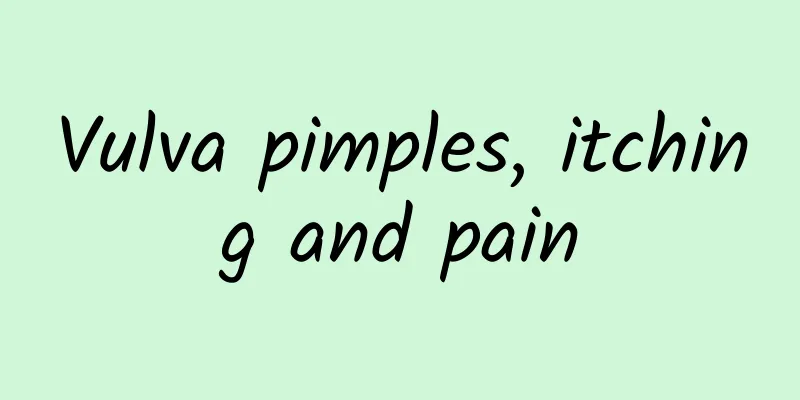How to treat allergic eczema

|
Allergic eczema is a common skin disease. There are many causes of this disease. Allergic eczema patients are very painful. When encountering allergens, they will itch extremely and can't help scratching with their hands, which aggravates the condition and forms cross infection. This disease is relatively stubborn, and even if it is cured this time, eczema will grow again due to other allergens, which brings great trouble to patients. How to treat allergic eczema more thoroughly? For patients with allergic eczema, not only should symptomatic treatment be carried out, but they should also pay attention to some small details in life and avoid abusing medication. Be sure to follow your doctor's advice. Below I will introduce how to treat allergic eczema. I hope it will be helpful to you. (1) General treatment: ①Try to find the cause of the disease as much as possible, isolate the allergen, and avoid further stimulation. Remove lesions and treat systemic chronic diseases such as indigestion, intestinal parasitic diseases, diabetes, mental and neurological abnormalities, varicose veins in the lower legs, etc. ② Pay attention to skin hygiene, do not use hot water or soap to clean skin lesions, and do not use irritating antipruritic drugs. ③ Avoid alcohol, spicy and irritating foods, avoid foods that are easy to cause allergies and difficult to digest, such as fish and shrimp, and pay attention to the relationship between diet and the onset of the disease. ④ Combine work and rest to avoid excessive fatigue and mental stress. (2) Systemic therapy: ① Non-specific desensitization treatment: Acute or subacute eczema can be treated with 10% calcium gluconate 10ml or 10% sodium thiosulfate 10ml intravenous injection once a day; or 0.25% procaine 20ml plus vitamin C 1-2g intravenous injection once a day. ② Glucocorticoids: their use is generally not recommended. For patients with significant and widespread inflammation in the acute phase, short-term use may be considered, such as prednisone 20-40 mg/d. After the effect is seen, the dosage may be reduced or even discontinued as appropriate. ③Immunomodulators: Freeze-dried BCG (BCG), thymosin, transfer factor, levamisole, etc. can be used, which are effective for chronic eczema, especially in elderly patients. ④ Antibiotics: For patients with bacterial infection, fever, and swollen lymph nodes, oral erythromycin, ciprofloxacin, or intramuscular penicillin can be used. (3) Physical and radiotherapy such as liquid nitrogen cryotherapy, superficial X-ray or radionuclide (32P or 90Sr) application therapy can be used for chronic localized eczema with a long duration and stubbornness. The above introduces how to treat allergic eczema. You can choose the treatment method that suits you according to your condition. Of course, this is just for reference. If you want systematic treatment, you still have to go to a professional skin hospital for treatment. If conditions permit, you can conduct an allergen test to find out the substances that cause allergies and stay away from these adverse factors in your life. This will fundamentally cut off the allergens. It is the most direct method to control the disease. |
>>: Nasal congestion, runny nose, sneezing
Recommend
What are the effects of chasing wine?
Bee wine is quite common in daily life, and some ...
What should I do if my baby has a rash on his butt?
Red rash on the baby's buttocks is a skin sym...
Effects and functions of Taizishen
I believe everyone knows the effects of ginseng i...
What to do if your hands get blisters?
People's hands can easily get scalded and cau...
I drank something cold after 10 days of medical abortion
Anyone with common sense knows that after a misca...
What is gastrointestinal menopause
The so-called gastrointestinal menopause refers t...
Can mugwort cure infertility?
For some couples who desperately want to have chi...
Is it better to apply hot or cold compress to eye bags?
If a woman has bags under her eyes, it looks very...
How to do mud moxibustion
Many people don't know much about mud moxibus...
What medicine to use for vaginal itching
The female genitals are a relatively weakly prote...
Bloating and farting during menstruation
Symptoms such as bloating and flatulence during m...
What to do if your skin is itchy in winter? Dryness is to blame
In winter, the weather will be very dry, and many...
Is it easy to extract upper wisdom teeth?
Wisdom teeth are a type of human teeth. People ar...
The genetic probability of ankylosing spondylitis is so great
Life will become extremely painful after sufferin...
Warning: You may have cancer even if you don't feel any pain or itch
Painless hematuria Hematuria without abdominal pa...









